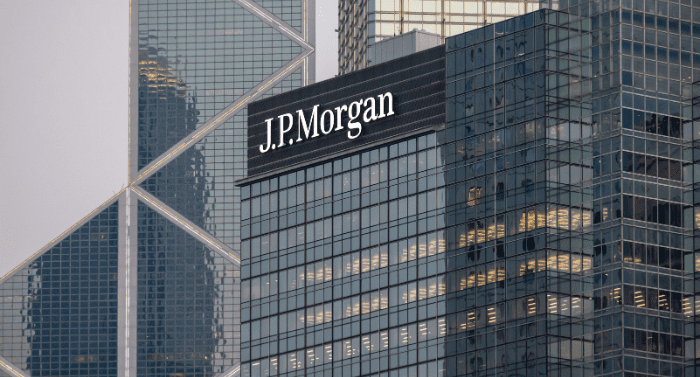
The US bank JPMorgan raised from 40% to 60% the likelihood of a global recession in 2025. The change was attributed to the tariff package announced by US President Donald Trump on Wednesday.
The assessment is reported by a report signed by analysts Bruce Kasman, Jahangi Aziz, Joseph Lupton and Nora Szentivanyi, released by international vehicles on Friday (5).
The document, entitled There will be bloodIt warns that new rates applied to imports from over 60 countries pose the highest risk to global growth projections this year.
According to the text, US business policies “decisively less favorable to business” directly threaten global supply chains and endanger the current cycle of expansion of the world economy.
“US disruptive policies were considered the greatest risk for global projections throughout the year,” the report says.
New tariff measures expand tension in international trade and have already caused immediate reactions from affected countries, including China. In an official statement, the Chinese government announced a 34% rate on all imports from the United States, scheduled to start April 10.
The decision was released by the state agency Xinhua and represents an intensification of the commercial conflict between the two largest economies on the planet.
According to JPMorgan, the impact of the new tariff policy could be aggravated by three main factors: the retaliation of affected countries, the deterioration of US business confidence and the effects on the global production chain.
The bank evaluates that a possible reaction from the Federal Reserve – with cuts in the basic interest rate – would have limited effect. According to the CME Group’s Fedwatch tool, the financial market already projects up to four US interest rates throughout the year. Still, the report states that these measures would have only one “modestly softening” impact.
Despite the warning, JPMorgan analysts indicate that there are still not enough elements for a complete review of global macroeconomic projections.
According to the document, the economic fundamentals remain “relatively solid”, which could point to a moderate slowdown. However, the report warns, “Recessions are inherently unpredictable.”
The report also draws attention to the possible long -term impact of restrictive trade policies and the reduction of migratory flows. According to the bank, these changes “can impose lasting supply costs that will reduce US growth in the long run.”
Reactions to the tariff package were not limited to China. Vietnam, one of the countries most affected by new tariffs-that reach 46% of some products-has chosen to start negotiations with the US government before adopting any retaliatory measure.
In a social network publication, Donald Trump stated that President Vietnamese, to Lam, has shown the willingness to reduce export rates to zero as long as there is an agreement with the United States. “Lam told me that Vietnam wants to reduce his fares to zero if he can reach an agreement with the US,” Trump wrote.
According to information released by the international press, the Vietnamese government also requested the temporary suspension of tariffs for a period of up to three months, with the aim of enabling commercial negotiations that avoid additional losses.
The announcement of the new measures generated immediate reactions in the financial markets. Global scholarships recorded falls and the dollar valued at the main currencies. In Brazil, the main index of the Stock Exchange, Ibovespa, retreated 3.08% at 14:43, reaching 127,107 points. At the same time, the commercial dollar rose 3.52%, quoted at R $ 5,827.
The new tariffs mark another chapter in the trade policy adopted by Donald Trump in his second term. The strategy already has direct impacts on economic projections and the stability of global markets.
According to JPMorgan, if the scenario consolidates, the world may recession less than five years after the crisis caused by the Covid-19 pandemic.
Continuity of economic growth will depend, according to analysts, on the capacity of national governments and multilateral institutions to promote dialogue, avoid the fragmentation of production chains and contain the protectionist climbing in international trade.
With information from Reuters
Source: https://www.ocafezinho.com/2025/04/05/jpmorgan-eleva-fortemente-o-risco-de-recessao-global-apos-tarifaco-dos-eua/

